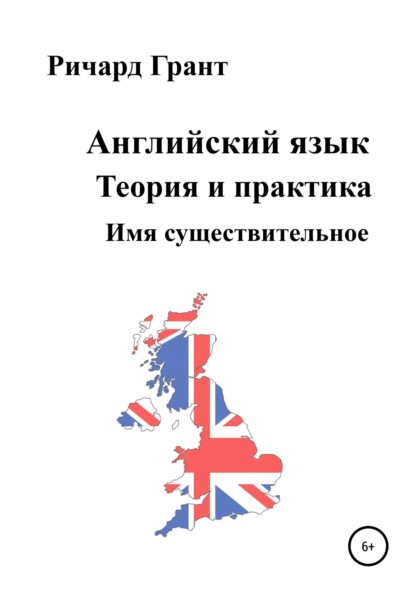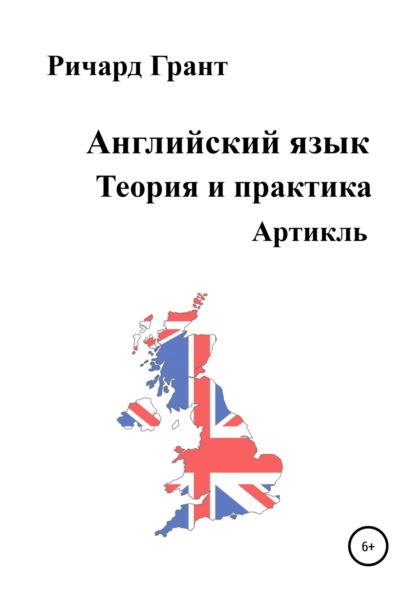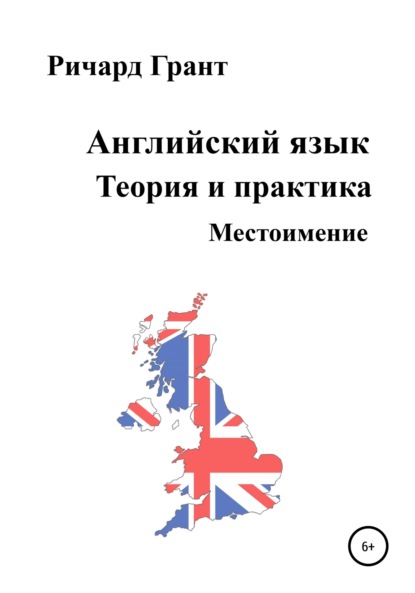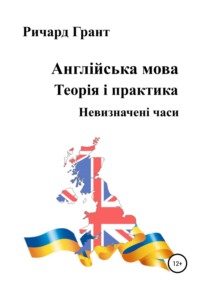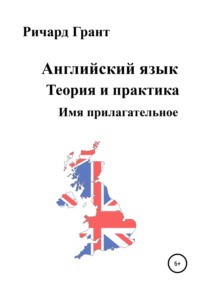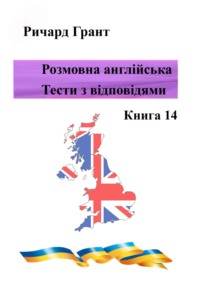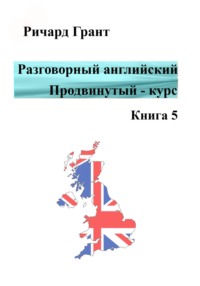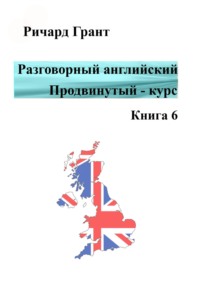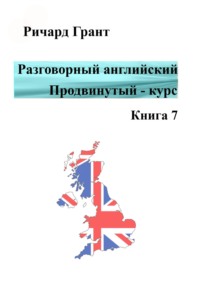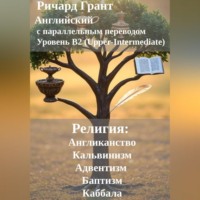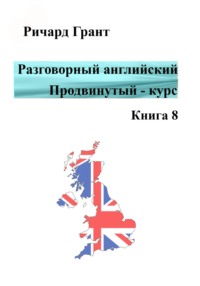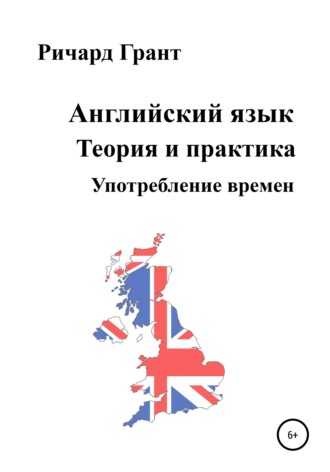
Полная версия
Английский язык. Теория и практика. Употребление времен
1. He (to visit) that place last year. 2. Look at this birdhouse. Mike (to make) it himself. He (to make) it last Sunday. 3. Show me the dress which you (to make). 4. The new school (to begin) working last year. 5. The wind (to blow) off the man’s hat, and he cannot catch it. 6. I just (to get) a letter from Tom. 7. Where you (to put) my pen? I cannot find it. 8. Oh, how dark it is! A large black cloud (to cover) the sky. I think it will start raining in a few minutes. 9. At last I (to do) all my homework: now I will go out. 10. The weather (to change), and we can go for a walk. 11. You (to take) any photographs while travelling in the south? 12. You (to see) Mary today? 13. Oh, close the window! Look, all my papers (to fall) on the floor because of the wind.
Упражнение 33
Раскройте скобки, употребляя глаголы в Present Perfect или Past Simple.
1. The building of the house (to begin) early in April. 2. The wind (to change) in the morning. 3. He (to be) abroad five years ago. 4. When you (to see) Mary? – I (to see) her last week. 5. When you (to open) the window? – I (to open) it ten minutes ago. 6. The rain (to stop) but a cold wind is still blowing. 7. We (to travel) around Europe last year. 8. You (to be) in the Caucasus last year? 9. Your mother (to promise) to take you to the theatre? 10. The sun (not to rise) yet, but the sky in the east is getting lighter every minute. 11. We already (to solve) the problem. 12. My father knows so much because he (to travel) a lot. 13. They (to leave) England when he (to be) still a child.
Упражнение 34
Раскройте скобки, употребляя глаголы в Present Perfect или Past Simple.
1. Look at my new dress! I (to make) it myself. 2. I (to see) you walking along the street the other day with a heavy bag. 3. He (to come) a moment ago. 4. I (to see) Pete today. 5. He (not yet to come) back. 6. He is not at school today, he (to fall) ill. – When he (to fall) ill? – He (to fall) ill yesterday. 7. I (not to read) the newspaper today. 8. I never (to speak) to him. 9. She (to see) this film last Sunday. 10. He (to go) already? 11. I already (to do) my homework. Now I can go for a walk. 12. It is very late, and trams (to stop) running: we must find a taxi to get home. 13. He just (to finish) his work.
Упражнение 35
Раскройте скобки, употребляя глаголы в Present Perfect или Past Simple.
1. Alex (to meet) his friend two hours ago. 2. When you (to see) him last? 3. I (to do) my homework yesterday. 4. How many times you (to be) to Toronto? 5. You (to make) any spelling mistakes in your dictation? 6. I just (to meet) our teacher. 7. I (not to see) him for ages. 8. He just (to come) home. 9. At last I (to translate) this article: now I will have a little rest. 10. What books you (to read) when you (to live) in the country? 11. The children already (to decide) what to do with the books. 12. His health (to improve) greatly since I (to see) him last. 13. He (to come) home a minute ago.
Упражнение 36
Раскройте скобки, употребляя глаголы в Present Perfect или Past Simple.
1. We (to go) to the country yesterday, but the rain (to spoil) all the pleasure. 2. They (not yet to come) from the south. 3. Yesterday they (to decide) to help their grandmother. 4. You (to pass) your driving test yet? – Yes, I (to pass) it in May, but I (not to buy) a car yet. 5. Nick (to play) football yesterday. 6. My watch was going in the morning, but now it (to stop). 7. He (to be) ill last week, but now he (to recover). 8. I (not to see) you for a long time. I (to see) you in town two or three days ago, but you (not to see) me. I (to be) on a bus. 9. He already (to move). He (to find) a nice flat last Christmas and he (to be) there a year already. 10. She already (to come) from school. Now she is doing her homework. 11. The lecture (not yet to begin) and the students are talking in the classroom. 12. If everybody (to read) this new novel, let’s discuss it. 13. I (to read) this book last year.
Упражнение 37
Раскройте скобки, употребляя глаголы в Present Perfect или Past Simple.
1. You (to book) tickets? – Yes, I …. I (to book) them several days ago. 2. I (to read) this book this year. 3. I can hardly recognize you. I (not to see) you since you (to leave) for Toronto. And you (to change) so much. 4. I never (to be) to Washington. 5. You (to read) all the books on this shelf? 6. You ever (to be) to New York? 7. I (not to see) my cousin since last year. 8. I don’t think you ever (to see) Niagara Falls. 9. Why you (to put) these things in the wrong place? 10. I (to invite) Linda to the party. – When you (to see) her? – I (not to see) her for ages. I (to call) her an hour ago. 11. Why you (to leave) the door open? You will catch cold sitting in the draught. 12. “We (not to meet) for such a long time!” said my friend. “Yes, indeed,” I answered, “and we both (to grow).”
Разница
между
The Past Simple
и
The Past Perfect
Past Simple используется, когда действия происходят в хронологическом порядке, а Past Perfect – когда нужно показать, какое действие произошло первым, раньше остальных действий.
He started the car, turned the radio on and fastened the seat belt. – Он завел машину, включил радио и пристегнул ремень безопасности.
Действия описываются в хронологическом порядке: сначала он завел машину, потом включил радио и пристегнул ремень безопасности.
He started the car, turned the radio on, but before he had fastened the seat belt. – Он завел машину, включил радио, но перед этим пристегнул ремень безопасности.
Действия описываются не в хронологическом порядке: сначала он пристегнул ремень безопасности, а затем завел машину и включил радио.
Часто в подобных предложениях используется слово when (когда).
When I got home, my son took my car. – Когда я пришел домой, мой сын взял у меня машину.
When I got home, I found that my son had taken my car. – Когда я пришел домой, я обнаружил, что мой сын взял мою машину.
Если из контекста нам понятно, что одно действие произошло раньше другого, можно использовать как Past Perfect, так и Past Simple. Часто понять контекст и очередность событий помогают следующие слова-маркеры: before (перед тем как, до того как), after (после того как), first (сперва, сначала), as soon as (сразу после того как, как только), earlier (раньше) и т. д.
I didn’t worry about speaking in front of so many people. I gave public speeches earlier. – Я не переживал насчет выступления перед большим количеством людей. Я и ранее выступал на публике.
I didn’t worry about speaking in front of so many people. I had given public speeches earlier. – Я не переживал насчет выступления перед большим количеством людей. Я и ранее выступал на публике.
Упражнение 38
Раскройте скобки, употребляя глаголы в Past Simple или Past Perfect.
1. When the police … (to arrive), we already … (to catch) the thief. 2. Tom (to return) from the cinema at five o’clock. 3. By two o’clock the teacher (to examine) all the students. 4. Jack … (to finish) the test before the bell … (to ring). 5. Tom (to return) from the cinema by five o’clock. 6. On my way to school I (to remember) that I (to leave) my report at home. 7. When Anna … (to come) to say good-night, her children already … (to fall) asleep. 8. I (to finish) my homework at seven o’clock. 9. My friends (to be) glad to hear that I (to pass) all the exams successfully. 10. Scott already … (to prepare) the dinner when her husband … (to get) home from work. 11. I (to finish) my homework by seven o’clock. 12. Poor Oliver (to lie) unconscious on the spot where Sikes (to leave) him. 13. When Brad and Susan … (to get) married, they … (to know) each other for 3 years. 14. He (to think) that he (to lose) the money. 15. Mary (to tell) us that she (to cook) a good dinner.
Упражнение 39
Раскройте скобки, употребляя глаголы в Past Simple или Past Perfect.
1. He (to open) his eyes, (to look) around and (to try) to remember what (to happen) to him. 2. She … (not to enjoy) the film because she … (to read) the book before. 3. Ann (to tell) me that she (to see) an interesting film. 4. All the passengers (to see) at once that the old man (to travel) a great deal in his life. 5. Our apartment … (to be) in a mess because I … (to have) a birthday party the night before. 6. When I (to come) home, mother already (to cook) dinner. 7. By the time we (to come) to see him, he (to return) home. 8. We … (not to go) to a restaurant because we … (to spend) all our money on clothes. 9. When father (to return) from work, we already (to do) our homework. 10. During the holidays my friend (to visit) the village where he (to live) in his childhood. 11. Mary … (can’t go skating) after she … (to break) her leg. 12. When the teacher (to enter) the classroom, the pupils already (to open) their books. 13. When they (to enter) the hall, the performance already (to begin). 14. Larry … (to be) late because he … (to get) stuck in a traffic jam. 15. Kate (to give) me the book which she (to buy) the day before. 16. Yesterday I (to find) the book which I (to lose) in summer.
Упражнение 40
Раскройте скобки, употребляя глаголы в Past Simple или Past Perfect.
1. When I came home, my mother (to tell) me that she (to receive) a letter from grandfather. 2. Nick (to show) the teacher the picture which he (to draw). 3. Where you (to work) before you (to go) to university? 4. The boy (to give) the goats the grass which he (to bring) from the field. 5. He (to know) French before he (to visit) France. 6. Mother (to see) that Nick (not to wash) his hands. 7. Lanny (to say) that he (to get) his education in Cape Town. 8. The teacher (to understand) that Lena (not to do) her homework. 9. The boy (to want) to act the main part in the play because he (to organize) the theatre. 10. I (to know) that my friend (not yet to come). 11. Lanny (not to know) who (to attack) him in the darkness. 12. When I (to wake) up yesterday, father already (to go) to work. 13. The girl (to be) glad that she (to find) a seat near the window. 14. Nick (to think) that his father (not yet to come) home. 15. Suddenly he (to remember) that he (not to ring) her up in the morning. 16. When we (to come) to the station, the train already (to leave).
Разница между The Present Perfect и The Past Perfect
Время Present Perfect используют для описания действия, которое завершилось к настоящему моменту, в то время как Past Perfect – для действия, которое началось и завершилось к определенному моменту в прошлом.
Основные слова-маркеры Past Perfect и Present Perfect: already (уже), just (только что), since (с), yet (уже; еще не), ever (когда-либо), for (на протяжении).
He has already left, but you can call him and ask to wait for you. – Он уже ушел, но ты можешь ему позвонить и попросить подождать тебя. – Present Perfect – (действие завершилось к определенному моменту в настоящем)
When I called the police, the thief had already gone. – Когда я позвонил в полицию, вор уже убежал. – Past Perfect – (действие завершилось к определенному моменту в прошлом)
I haven’t finished cooking yet. Can you, please, wait a bit? – Я еще не закончила готовить ужин. Можешь, пожалуйста, немного подождать? – Present Perfect – (действие завершилось к определенному моменту в настоящем)
I hadn’t finished cooking dinner yet so he ate a sandwich. – Он пришел домой очень рано вчера. Я еще не закончила готовить ужин, поэтому он съел сэндвич. – Past Perfect – (действие завершилось к определенному моменту в прошлом)
We have been married for 20 years, and now he wants to get divorced. – Мы женаты 20 лет, и теперь он хочет развестись. – Present Perfect – (действие завершилось к определенному моменту в настоящем)
We had been married for 20 years and got divorced in 2018. – Мы были женаты 20 лет и развелись в 2018. – Past Perfect – (действие завершилось к определенному моменту в прошлом)
Разница между The Future Perfect, The Future Simple и The Future Continuous
Future Simple – что-то произойдет в будущем – говорим об этом как о факте, без акцента на продолжительности или завершенности действия.
I will buy tickets for the concert tomorrow. – Я куплю билеты на концерт завтра.
He will talk to his boss as soon as he can. – Он поговорит с боссом, как только сможет.
Future Continuous – действие начнется в будущем и будет длиться какое-то время – акцент на продолжительности этого действия.
I will be going home from work this time. – В это время я буду идти с работы домой.
I will be waiting for you. – Я буду ждать тебя.
Future Perfect – действие завершится к определенному моменту в будущем – акцент на результате этого действия.
They will have finished the project before the deadline. – Они закончат проект в срок.
We will have been best friends for 30 years by then. – К тому времени мы будем друзьями уже 30 лет.
Разница между The Present Perfect Continuous и The Present Continuous
Present Perfect Continuous – действие началось какое-то время назад, длилось и все еще продолжается.
She has been playing volleyball since childhood. – Она играет в волейбол с детства. Она настоящий профессионал.
I have been washing the car. I need to take a shower. – Я мыл машину. Мне нужно принять душ.
Present Continuous – действие происходит в настоящий момент.
She is playing volleyball. Look – she is wearing black shorts and a white T-shirt. – Она играет в волейбол. Посмотри – на ней черные шорты и белая футболка.
I am washing the car. Then I’ll have a shower. – Я мою машину. Затем я приму душ.
Разница между The Present Perfect Continuous и The Present Perfect
Present Perfect Continuous – акцент на продолжительности действия. Неважно, закончилось действие или нет.
I have been cleaning the kitchen all morning. I am very tired. – Я убирала кухню все утро. Я очень устала.
Mary is very studious. She has been doing homework all evening. – Мэри очень прилежная. Она делает домашнее задание весь вечер.
Present Perfect – акцент на результате действия. Действие выполнено.
I have cleaned the kitchen. It is as good as new now. – Я убрала кухню. Теперь она как новенькая.
She can go out because she has done her homework. – Она может идти гулять, потому что сделала домашнее задание.
Present Perfect Continuous – действие все еще продолжается или только что закончилось. Можно задать вопрос how long? (как долго?).
I have been watching the last season of “Game of Thrones” since yesterday. – Я смотрю последний сезон “Игры престолов” со вчерашнего дня.
They have been hitchhiking for seven years. – Они путешествуют автостопом уже семь лет.
Present Perfect – действие завершено. Можно задать вопросы how much? (сколько?), how many times? (сколько раз?), how often? (как часто?).
I have watched the last episode of “Game of Thrones” three times. – Я посмотрел последнюю серию “Игры престолов” три раза.
I have never hitchhiked in my life. – Я никогда в жизни не путешествовал автостопом.
Разница между The Present Perfect Continuous и The Past Continuous
Present Perfect Continuous – действие началось в прошлом и либо все еще продолжается, либо у него есть результат в настоящем.
What have you been doing all day today? – I have been working on a presentation for our next meeting. – Чем ты занимался весь день сегодня? – Я работал над презентацией для нашего следующего собрания.
Past Continuous – действие происходило в определенный момент в прошлом.
What were you doing at 9 p.m. yesterday? – I was working on a presentation for our next meeting. – Что ты делал вчера в 9 часов вечера? – Я работал над презентацией для нашего следующего собрания.
Разница
между
The Future Perfect Continuous
и
The Future Perfect Simple
Future Perfect Continuous и Future Perfect Simple похожи, а иногда могут быть взаимозаменяемыми. Например, в случае с глаголами, которые не используются с временами группы Continuous: know, understand и другими. Однако есть между ними одно важное отличие – для Future Perfect Continuous важно подчеркнуть длительность действия, а Future Perfect Simple делает акцент на завершенности действия и его результате.
By the end of the day I will have been reading for eight hours. – К концу дня я буду читать на протяжении восьми часов. – Future Perfect Continuous
By the end of the day I will have read 500 pages of the book. – К концу дня я прочитаю 500 страниц книги. – Future Perfect Simple
I will have been working on this project for six months by the end of this year. – К концу года я буду работать над этим проектом уже на протяжении шести месяцев. – Future Perfect Continuous
I will have finished working on this project by the end of this year. – К концу года я закончу работать над этим проектом. – Future Perfect Simple
Запомните:
В придаточных предложениях времени и условия после союзов if, when, as soon as, before, till/until, after вместо будущего времени употребляется настоящее время.
Упражнение 41
Раскройте скобки, употребляя глаголы в Present Continuous, Present Simple или Future Simple.
1. I (to play) chess tomorrow. 2. It (to be) cold in autumn. It often (to rain). A cold wind often (to blow). 3. You (to come) to my place next Sunday? 4. My sister (not to like) coffee. 5. I (not to play) chess tomorrow. 6. The weather (to be) fine today. It (to be) warm, the sun (to shine) brightly. A soft wind (to blow). Small white clouds (to sail) in the sky. 7. You (to read) this book next week? 8. When you (to go) to bed every day? 9. You (to play) chess tomorrow? 10. Don’t go out: it (to rain) heavily. 11. You (to read) books every day? 12. What he (to read) now? 13. He (to play) chess every day. 14. Take your raincoat with you. I am afraid it (to rain) in the evening and you (to get) wet through if you (not to put) it on.
Упражнение 42
Раскройте скобки, употребляя глаголы в Present Continuous, Present Simple или Future Simple.
1. You (to read) a book now? 2. What he (to read) every day? 3. He (not to play) chess every day. 4. Every spring birds (to come) to our garden and (to sing) in the trees. 5. I (not to see) him tomorrow. 6. What he (to read) tomorrow? 7. He (to play) chess every day? 8. Listen! Somebody (to sing) in the next room. 9. What you (to do) tomorrow? 10. You (to give) me this book tomorrow? 11. They (to play) chess now. 12. It usually (not to snow) at this time of the year. 13. What your friend (to do) tomorrow? 14. Where she (to be) tomorrow?


